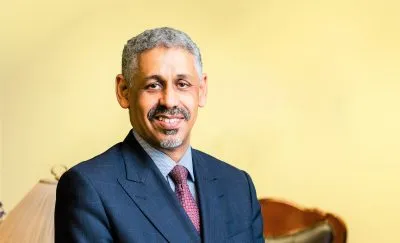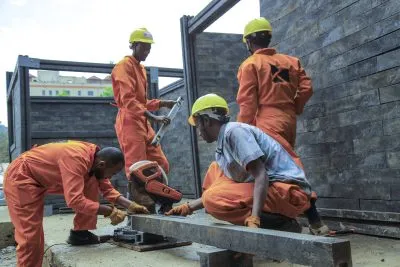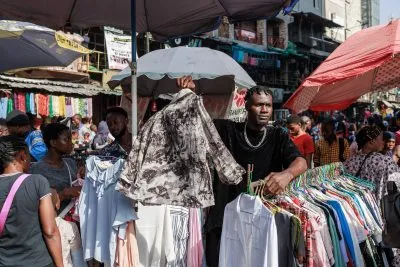In June, Egypt’s cabinet formally approved plans for the country to establish a Sovereign Wealth Fund (SWF). According to Planning Minister Ashraf El-Araby, the fund is to be called Amlak, and will be state owned via the National Investment Bank. The SWF will also be tasked with running a number of state assets.
In the same month, Egypt’s Minister of Industry and Trade Mounir Fakhry Abdel Nour told Russian media that the Russian Direct Investment Fund and Arabian SWFs will play a role in establishing the fund. He added that the fund will be focused on communications, logistics and travel infrastructure in particular. Sovereign wealth fund experts are generally positive that Amlak could give Egypt’s economy a much-needed lift.
“On the positive side, Amlak should encourage badly needed infrastructure investment in Egypt with domestic and external financing,” says Eliot Kalter, President of EM Strategies. “The catalytic role that Amlak could play to encourage foreign-financed investment should also bring into the country both technical and good governance expertise. Indeed, this should be a factor in selecting foreign ‘partners’ for investing in Egypt’s future.”
Patrick Schena, Co-Head of the Fletcher Network for Sovereign Wealth and Global Capital, is also upbeat. “Such a fund has the potential to support the development of Egypt’s economy and to contribute to both growth and social stability, particularly if its investment programme is professionally managed and structured to complement Egypt’s broader long-term national development agenda,” he says.
Nonetheless, it is unclear how big the SWF will actually be. Information in the public realm has been conflicting. Newspaper Al-Am Al-Youm has reported that the government intends for the fund to attract $20bn worth of foreign investments and have an issued capital of 15bn Egyptian pounds (just under $2bn) courtesy of the Ministry of Finance and the National Investment Bank. Back in February, the local newspaper Al-Youm Al-Sabei also claimed that investors from the Gulf intended to pump $10bn into the country’s new fund, citing an anonymous senior government official. In reality, it seems that the figure will be much smaller, at least for the outset. Egypt’s Planning Minister Ashraf El-Araby has said the Amlak fund is to be capitalised with $655m. And according to David Evans, an expert at Institutional Investor’s Sovereign Wealth Centre, this would make the country “a very small player in the SWF world”.
The launch date for Amlak is similarly in doubt. “It’s difficult to say [when the SWF will be launched],” says Evans. “It can often take a couple of years for a sovereign wealth fund to materialise after the initial announcement. Nigeria passed legislation to create the Nigeria Sovereign Investment Authority in 2011, but the fund didn’t actually become operational until 2013. Tanzania first started talking about a SWF in 2012 − we’re still waiting for it.”
A true sovereign wealth fund?
News of Egypt’s sovereign wealth plans has raised concerns that such a tool could aggravate transparency issues that already affect Egypt’s economy. Rumours that much of the money for Egypt’s SWF will ultimately be sourced from the Gulf have also led to questions about the repercussions for the country’s economic independence. However, Evans argues that these fears may be “overblown”.
“Though there’s sometimes a lack of transparency, sovereign wealth funds overwhelmingly invest for the same reason any other big institutional investor – namely, to generate returns. To attract capital from SWFs, Amlak will have to convince them of the commercial viability of each project,” he says.
Adam Dixon, a sovereign wealth funds expert at the University of Bristol, also suggests that mutual interests may, on this occasion, cancel out concerns about creeping Gulf influence in Egypt’s economy. “I’d be surprised if Gulf investors would necessarily be given a huge amount of influence in the country. Again, they appear to be worried about the consequences of a destabilised Egypt for the region and their own security,” he says.
Nonetheless, EM Strategies’ Kalter warns that Amlak needs to meet a number of conditions to minimise certain risks. “Amlak expenditure should be captured within the budgetary process to promote fiscal responsibility and transparency,” he says, adding that Amlak expenditure needs to be aligned with national
investment priorities and should take the “absorptive capacity” of the country’s economy into account in order to evade “inflationary pressures and crowding out the domestic private sector”.
Experts see the emergence of funds such as Amlak as a sign that SWFs are widening in their appeal. “There’s no doubt that sovereign wealth funds are in vogue at the moment. They are seen by many governments as something of a status symbol,” explains Evans.
Schena also argues that “Egypt’s SWF initiative, I believe, speaks to the perceived benefits of institutionalising state investment programmes.”
However, while there are many positive feelings about Egypt’s project, some experts question whether Amlak will actually be, by definition, a true SWF.
“Egypt’s plan to allow foreign SWFs to buy ‘stakes’ in Amlak’s so-called sub-funds, with each focusing on a separate domestic infrastructure sector, is highly unusual. In fact, ‘sovereign wealth fund’ might be the wrong designation for the kind of organisation Egypt has in mind,” he says, pointing out that the term sovereign wealth fund usually refers to an investment vehicle that is created using a government’s surplus capital to generate intergenerational equity.
“Amlak sounds more like something along the lines of Wessal Capital, the vehicle set up by the Moroccan government to co-invest with foreign SWFs in the domestic tourism sector, or the Russian Direct Investment Fund, which co-invests with foreign state investors in big Russian infrastructure projects. These are more like state-backed private equity vehicles rather than SWFs,” he adds.
Dixon takes a similar view, framing the development in terms of rising international concerns about Egypt’s decline: “This looks more like a development bank financed by wealthy countries in the region that are most likely concerned with the economic and political stability of Egypt,” he says.
Want to continue reading? Subscribe today.
You've read all your free articles for this month! Subscribe now to enjoy full access to our content.
Digital Monthly
£8.00 / month
Receive full unlimited access to our articles, opinions, podcasts and more.
Digital Yearly
£70.00 / year
Our best value offer - save £26 and gain access to all of our digital content for an entire year!

 Sign in with Google
Sign in with Google 





